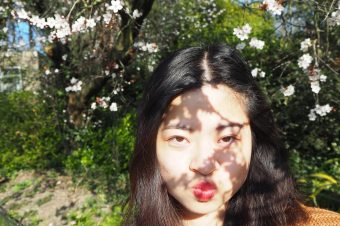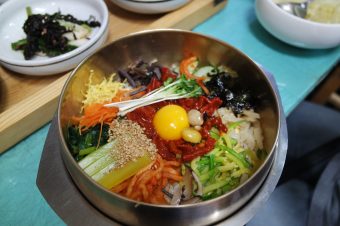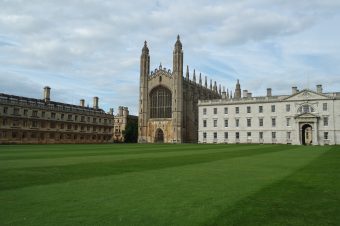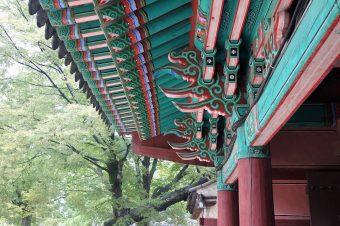Here’s my Peking Spring program review post! The program details will cover my experience in Beijing and some tips about being in Beijing and China. Sorry if I don’t get everything because I’m writing this with what I though was interesting or important. Leave a message if you have any questions! Disclaimer: this is just my experience HAHA.
Peking University
**For some Tsinghua please refer to this post. The two schools are right across the street from each other and share much of the same community!
Founded in 1898, Peking University is one of the top universities in China (or THE top university). It was originally known as the Imperial University of Peking and was the first modern university in the nation.
Peking University is located in the Haidian District (海淀) of Beijing right outside the fourth ring road and is surrounded by many of the other top universities in China, so it’s basically a giant university town. The campus was originally an imperial garden and the architecture on campus, whether old or new, still retains ta beautiful traditional Chinese essence. The campus features three lakes, with a main one named Weiming/Nameless Lake (未名湖) which is popular among students and tourists alike for relaxing and taking photos.
The university, as all the other universities in the area, is a bit far from the districts of Dongcheng and Chaoyang which is where a lot of the newer and trendier places to hang out are, but the area has its own specialties. Wudaokou (五道口) is a popular area right outside Tsinghua university that offers tons of Korean food and other cuisine options and is becoming a famous place to eat out in Beijing. The nearby Zhongguancun (中关村) offers lots of shopping options. Nearby also is the Summer Palace which was another imperial garden and a must see in the spring and winter. The Old Summer Palace which was the original main palace before being destroyed in 1860 by Anglo-French forces is located just north of the Peking University Campus and is also a must visit sight to learn some little known Chinese history.
I chose to go to Beijing in the spring because I wanted to see all the flowers blooming and I heard that Beijing’s spring was something that you could never forget. The flowers especially all around campus are a sight to behold with different species blooming into June. The air quality is also better during this semester with an almost always blue sky except for a couple of sandstorms from the desert and earlier on during the winter.

OLYMPUS DIGITAL CAMERA

OLYMPUS DIGITAL CAMERA

OLYMPUS DIGITAL CAMERA

OLYMPUS DIGITAL CAMERA

SAMSUNG CAMERA PICTURES
Why did I choose Peking instead of Tsinghua?
Peking University is more known for its liberal arts majors compared to Tsinghua which focuses more so on STEM subjects. I am an Asian Studies major and previously an International Studies major so I thought it would be a great opportunity to study at the renowned International Studies department at PKU.
Making Friends
The student body at Peking University is very, very diverse with a large population of international students studying abroad or earning a degree there. It’s very easy to make friends at PKU with people in class or even at the dorms. Usually, you’ll first get to know people through Wechat groups (more on that later) or for UCEAP, through our orientations and tours. By the end of the program, you’ll probably have friends from all over the world. Everyone is super welcome to making new friends and meeting new people. It’s bad to say this because we take it for granted but everyone knows English so don’t be afraid to hit up a conversation-as awkward as it can be in the beginning. Making friends from around the world is a really great part about the PKU program where there’s a relatively equal amount of people from everywhere rather than a saturation of Californians like my other two programs. You really get to hear other’s stories and experiences, and exchange a lot of views.
Local Chinese students at PKU usually have a grasp, or a really, really good grasp on English and if your Chinese isn’t up to your standards of being able to communicate with them, go ahead and try English. There is definitely a culture difference in approaching people to make friends though so pay attention to that! Good places to make more local friends would be when you’re out and about in town, eating in the cafeterias, or in class. For UCEAP, we were assigned language buddies who were in general really passionate about their role and they’re a great way to get to know more about local Chinese views, customs, and cultures as well as getting to know more people (like their friends) and practicing your Chinese.
Another really, really great way to meet new people is to join at least one of the countless clubs on campus. The people there are usually very welcoming, and even if you don’t know Chinese that well, they’ll try their best to help you adjust to the group! Also if someone doesn’t seem too open with talking to you, don’t persist and make them uncomfortable. Respect others!
Program Structure
The program structure for UCEAP and study abroad in general at Peking was very different from my previous two programs in that international students were fully integrated into the normal school system instead of being given international student specific courses. PKU offers tons of English taught courses each semester and if your Chinese is good enough, you can also try to take the Chinese taught courses. I had friends taking everything from biology, business, economics, environmental sciences, to international studies courses and even people doing research.
The nice thing about the program is that you sign up for classes while on campus during the first week and you basically write down what you want and a local student will help you sign up for the classes right on the computer. The first pass is lottery, similar to in Yonsei and after that you can try to get into classes if there are still spaces left or if someone drops. For UCEAP, you can also request the professor to send the grade directly to UCEAP Beijing (the office is located in the same housing community as the international dorms and we have two awesome advisors there ready to help you out!) if you really wanted a class and couldn’t get into it.
There is also the option to take Chinese language courses at PKU with the HYXY (汉语学院). Classes run from 15-20 hours a week depending on your level with higher levels having less hours. Usually if you’re taking HYXY classes, you will have two courses: a language course and a grammar course. Alternatively, if you want to improve on specific Chinese language topics such as business or ancient Chinese, you can also sign up for those.
The Peking Spring program runs on a semester system and you can also start in the fall for a fully year. For UC students other than Berkeley and Merced, information load will seem heavier than the quarter system. The semester usually runs from mid-February to early-late June depending on your class finals.
During the program with UCEAP, we were treated with a trip to Nanjing where we got to meet up with the UCEAP students studying at Fudan. Apparently, more people study in Fudan in the fall and less in the spring while Peking has the opposite situation.
We have a UCEAP center for Beijing as stated earlier and the main UCEAP office is in Shanghai at Fudan University.
Academics
Relating to signing up for classes, I will talk a little about my experience with PKU courses.
Peking University courses are definitely a challenge, Chinese and English taught. I think my semester at Peking was the hardest one I ever had…or maybe because I was eating and sleeping away my days. Anyhow, studying so much was also a great way to explore the school because there were so many cool places to study on campus and even though I felt like my brain would explode, in the end, I came away with a lot of information and knowledge that I probably wouldn’t have had the opportunity to learn back in UCLA (at least not from the same point of view).
I took the two HYXY course package and an English taught international studies course which doesn’t seem like much but in reality, you really had to put a lot of time and effort into them. My Chinese reading skills definitely improved exponentially and since I was elected class president, my communicating skills (aka convincing my teachers that my classmates were going to come to class) really improved as well. The Chinese courses were an excruciating experience since I ended up with an 8am everyday (not everyone’s schedule is like this, depends on which class you’re placed in) and there was so many words to learn every week. In the end, it was definitely worth it and I would recommend anyone to take HYXY courses to improve your Chinese. Learning a language while in its environment doubles the effectiveness and you learn a lot more about local cultures and applications through it as well.
My international studies course was called Chinese Perspectives on Global Affairs and it was the hardest class ever. This class was technically a PKU-Cornell for Cornell’s China and Asia Pacific Studies major (yay advertisement for Cornell) joint class but I didn’t know this. Basically, my friend and I were the dumbest kids in class and we were always eating because of the class time and the Cornell kids knew everything, but it’s okay, everyone suffered together in the end and we built a class bond like no other hahahaha. Although the class is titled “Chinese Perspectives,” it actually covered a lot of other perspectives and with everyone coming from all over the world, discussions were really fun. We also went on a class field trip to Museum of the War of Chinese People’s Resistance Against Japanese Aggression (Googled the name because we couldn’t even remember it the day we were there…it’s so long why) and to the Marco Polo Bridge.
Some people come in thinking that courses in political science or international studies at a university like PKU that has churned out so many officials would be really biased in teaching but it really isn’t the case (although there will definitely be some instructors who are). The class was not skewed towards a specific perspective (aka this is what the government wants you to know) but instead a course where you look at was has happened and was is happening in relation to China and the world and what internal and external factors or methods that are being taken globally. Even our field trip, where the museum was literally CCP this, CCP that was a tool for us to understand all the different perspectives people have on history and current events. I don’t really know how to describe it…at the same time that you get an in depth look at the internal workings of the Chinese government and it’s plans, you also get a bird’s eye view of everything together. Nothing was said to be right or wrong and everything was up for discussion.
Among my friends and also the UCEAP students at Tsinghua, we experienced a wide variety of professors and classes. There was a general consensus that classes were pretty hard. This program is not an all-play study abroad experience (but we definitely played more than studied still so), but study abroad should be a learning experience culturally and academically. Peking University is the top university in China and only the top almost 1% of students from each province can get in and as an international student studying there, you’re learning along side these top students. It’s not an easy road, but it will be a rewarding one! A lot of people had confusing professors but there were lots of awesome professors too so it really depends on your luck. Despite the heavy workload, everyone was going out everyday and traveling on the weekends!

Chinese language classroom

lecture room
Accommodations
For accommodation, please refer to these two posts: ✩ ✩
Culture and Living/Travel
- Beijing
- On Campus: The Peking University Campus is really international and the school does a good job in integrating everyone. There is an international students office on campus and while I was there, there was also a multicultural fair with everything from craft making, dancing, to cooking. Students in general are really open to different races and cultures. For Chinese campus culture, many students are in campus clubs (hiking, biking, cats, traditional instruments, etc.). You’ll find most students studying A LOT. Bikes are a thing here, so make sure that you pay attention to people making their way through the crowds on bikes.
- Beijing:
- Beijing is the political capital of China and everyone talks politics, especially the taxi drivers. Sometimes opinions can be interesting, sometimes they can be insulting. Be open-minded or just say “ahhh.” Sometimes things can get heated internationally, and people get heated.
- Just like in other places around the world, there is bound to be radicals who take things a step too far. Example? The THAAD issue. It’s a touchy topic but my friend began to tell people that she was Chinese American instead of Korean American to avoid some people being way too confrontational. These people are few, but you’ll probably encounter them. Just know that they’re way in over their heads and the general populace think they’re crazy too.
- Beijingers are mostly used to foreigners but many people come in from other provinces to look for opportunities and it may be their first time seeing foreigners and WILL stare (especially if you don’t look Asian), but just take it in stride.
- Beijing is also a cultural center for China as the capital of the last two dynasties and largely untouched by foreign cultures compared to more coastal cities. Here, you’ll find a host of traditional arts, architecture, and food.
- There is a really big drinking culture here in Beijing with plenty of bars and clubs as well as lots of cafes and things to do for those who aren’t big drinkers.
- Beijingers in general are really chill and nice people!
- China
- Phone Applications:
- Wechat: While in China, you’ll definitely need Wechat. In Beijing especially, the application is used for everything and has overtaken cash and credit cards for method of payment. It’s basically a messaging application but with all your Venmo, Uber, airplane and train ticket purchasing, and shopping applications together. The good thing about this app is that it has English
- TMall (天猫) or Taobao (淘宝): You’ll get addicted to these two applications once you get your debit card connected here. Everything is available on these two online shopping giants at the tap of a finger.
- Eleme (饿了么) and Meituan (美团外卖): Food delivery in China is so, so good. The great thing about our accommodations is that they can deliver straight to our floor too. If you’re too lazy to go out and eat, these two apps are the answer to all your problems.
- Autonavi (高德地图): A lot of my friends just used Apple or Baidu maps but I thought that Autonavi was the most accurate in terms of directions. It helps a lot, especially when taking buses since it keeps track of stops and arrival times.
- Dianping (点评): You can think of it as Chinese Yelp. Find all the restaurants, salons, dance studios etc. you need on this app. You can also sometimes book tables or buy coupons for deals!
- When being abroad in general, not just in China, please be respectful to local culture and customs. You’re representing your country and not only that, being a good human being is just the right thing to do. Don’t take on a “foreigner privilege” while you’re here.
- Safety: Beijing is a huge, huge city and China is a really, really big country so there’s lots to it.
- Keep your belongings with you, never leave them at the table. When you’re on subways and other modes of transportation, it’s best to keep your bag in front of you.
- When traveling or partying late into the night, always have a buddy with you (as you should always do). It’ll ensure that you will get home safely.
- If you’re in a new place or you’re getting a sketchy feeling, always send shots of your location or turn on location on Wechat to keep in touch with your friends. If, as often in Beijing, the map tells you to go through the alleys and you are uncomfortable with it, just find another way through! Even I, who had an okay grasp of the language and the many alleys, was a little scared every time I took a shortcut.
- When eating in China, it really depends on the person…as in if you get food poisoning from the street food or not. In general, in places such as the tourist streets in Chengdu where operations are strictly regulated, everything is good to go, but for random street side carts, it’s up for you to judge. I got food poisoning every time I got breakfast at this cart place (never stopped me though) but nothing ever happened to my friends so just watch what you eat. Don’t go to sketchy establishments. If you have a sensitive stomach, just go to the cleaner restaurants. You’ll be fine, food isn’t scary in China (even though a lot of reports always say it is -__-“). Eating at McDonald’s everyday because you’re afraid of the food will be your greatest regret ever DUN DUN DUN.
- When traveling, which I will go through more thoroughly in the next section, keep in mind that not all places will be as safe (but on the contrary even more safe) than the big cities in China. Don’t get tricked by swindlers!
- This was a test question for my HYXY speaking test: Do you think China or your home country is safer. HAHAHAHA. I guess it depends on the area right, as with everywhere. In general, I felt safer being out at night or by myself in China actually, especially in Beijing where there are guards like…everywhere.
- Traveling: Traveling around China is super, super convenient. The public transportation in large cities like Beijing, Shanghai, Guangzhou (Canton), etc. is out of this world, ranging from basic stuff like subways to region specific modes of transportation like ferries and even tramways.
- Bullet Train: The bullet trains of China are well known around the world for it’s ultrafast development (like one day they weren’t there, and the next day tadah). They are really convenient, connecting all the largest cities in China, and without delays. In my opinion, they’re the best form of transportation unless you’re planning to go long distances like from Beijing to Guangzhou, which would take eight hours (AND you have to wake up at five in the morning for the direct one). If you’re traveling to cities like Shanghai or Nanjing, this is the way to do it!
- Airplane: There are airports everywhere in China, except the country is always plagued with bad weather in one place or another so domestic flights are often delayed (so sad). For places that are further from Beijing though, plane is the best option and tickets can be easily purchased online or at a store on campus. I would recommend flying the big three airlines (China Southern, Air China, and China Eastern) because they have the most flights, and flying with big airlines usually means more insurance.
- Buses: There are also long haul buses to go out of the city to places like Gubei Watertown outside of Beijing or even Inner Mongolia.
- Hong Kong/Macau: For people staying only a semester, the visa is usually only one entry so if you want to visit Hong Kong or Macau, you will have to apply for an extra entry at PKU’s international student center.
- The Importance of Traveling in China: I can’t emphasize enough how important it is to travel around China. Each and every province, and even every city (and within a city) has their own drastically different culture and history and you’ll never get a full picture of it until you experience everything for yourself. Tibet might be hard to get to as a foreigner because you need to turn in a lot of applications, but even visiting the other two largest cities, Shanghai and Canton, will give you a glimpse of how much China has to offer. For example, a lot of people didn’t know that Nanjing was an old capital when we visited for UCEAP, or what the Republic of China was, or who Sun Yat-sen was. Even on a less historical front, trying the local food and experiencing the difference in climate and city vibes of a “southern” city was eye-opening. I myself grew up with all this information (albeit a more Canton version of things) ingrained in the back of my head, but going on this trip made me realize how little we learn about China back in America. Different regions have their own culture, architecture, art, etc. much like here in America. Take a chance to explore as many places as you can while in China (bonus: there’s good food everywhere) because Beijing is just one part of it.
- Recommendations:
- Chengdu, Sichuan: The capital of Sichuan province. A laid back and really well organized city. Escape the hustle and bustle of Beijing for some really good down time here. Hike the nearby mountains, go see the pandas, eat all that Sichuan food! This place is one of my favorite cities in China.
- Shanghai: Shanghai is the most cosmopolitan city in China. The city has so much history to offer, playing important roles in China’s modernization in politics, economics, and culture. It is much more than the shining Pudong skyscrapers or the bougie lifestyles (thanks Tiny Times) that now define its image. Explore the Bund, the old neighborhoods, the quiet alleys, and listen to the local Shanghai dialect.
- Guangzhou, Guangdong: More known as Canton, this is the capital city of Guangdong province way in the south of China. It’s the home of Cantonese cuisine (like dimsum) and the place where the East first met the West. It’s also where Sun Yat-sen began his quest to take down the Qing government and the last capital of the Republic of China before the communists captured it. Visit the city to enjoy the greenery, the food, and here some of that Cantonese language and culture.
- Nanjing, Jiangsu: One of the ancient capitals of China, and the main capital of the Republic of China before it was moved inland to Chongqing (another must visit). It’s a city with tons and tons of history and crucial to understanding the creation and development of China into what it is today. Visit Sun Yat-sen’s final resting place, the Nanjing Massacre Museum, and the Confucius temples where scholars went to pray before taking the imperial exams.
- Kunming, Yunan: Nature, nature everywhere. The city is surrounded by must see natural sites and the province is home to the most ethnic groups in China. It’s toted as one of the most beautiful cites in China so go an see for yourself!
- Wuzhen, Hangzhou: One of the most famous water towns in China. If you’ve ever read a Chinese romance novel set in the ancient time, it’s probably set in a water town like this one. So romantic. Water towns are a feature of the areas around Jiangnan (around the Yangtze River), with very distinct architecture.
My opinion on this program
The Peking program was a life-changing experience. I’ll be really honest here (spill my guts) and say that I really, really did not want to go to Beijing. My previous times there gave me the impression that it was really, really boring…really, really big….really, really hard to live in. Nothing like my homey and convenient cities in the south like Shanghai and Canton where everything is literally a hand’s reach away. Who wanted to go to Beijing with its sandstorms, bad air, and bad food? Ew. I literally went to Beijing thinking that, no kidding. However, over the course of the program, my view of Beijing has completely changed. Living and learning there allowed me to explore and experience so much more of the city than ever before; it challenged me and allowed me to grow. I was truly out of my comfort zone and I love everything that I got out of it.
First off, the people I met there, from all the friends I made to the random people on the streets. Everyone taught me something new. I met much more people from all over the world here than my other programs but there was never a distance between us. The friends I made here, they pushed me to go out, have fun, to explore, and played a great role in changing my scope on Beijing and the stories they shared allowed me to learn so much. There’s a little something for everyone here and even though we were all different, the things we experienced together in Beijing brought us all together. The people I met during my internship gave me encouragement that I never thought I needed and gave me endless life lessons. Beijingers were friendly and approachable, striking up a conversation wherever and whenever.
Throughout the program, I scratched my ankle ten times in the same place with the bike pedal, stumbled my way through Mandarin conversations with the taxi drivers, got food poisoning, wasted some money on a gym pass, and probably bought too many things from Taobao, but its’ all for the better. Now I can ride a bike on the busy streets of Beijing, speak in Mandarin with my dad’s friends, know all the good food places to recommend to people, stretch my leg a little, and be a little funkier with my fashion.
I think, out of all three programs, the experience in Beijing is the hardest to convey in words. It’s just something I feel in my heart. I’m glad I got to study at Peking University and all the experiences I gained there has touched my heart to no end.
Beijing has so many sides to it and I haven’t even explored half of it. I never thought I would ever say that I wanted to go back, but I do, and I want to show other’s my Beijing too. I think though, in the end, the best is to go and experience the city for yourself. Don’t just go to the palace, or the Great Wall. Take the subway, the bus, walk around, explore for yourself. Go on this program *wink, wink.*
Like this:
Like Loading...
Related














